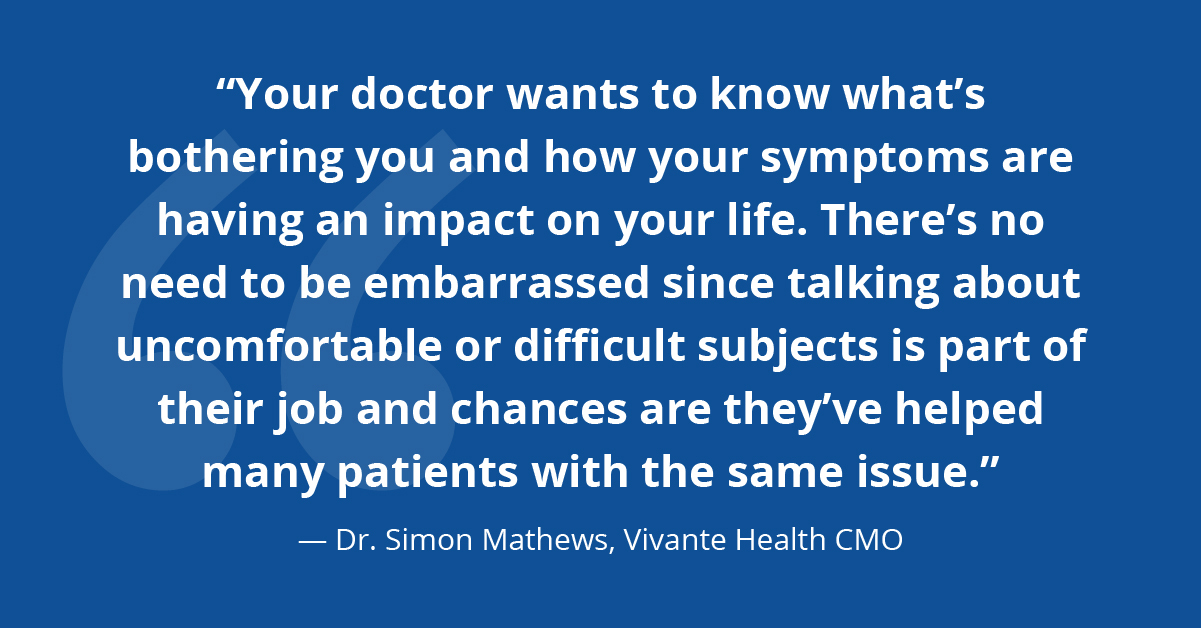For the millions of people who struggle with gastrointestinal symptoms and disease, finding effective care is essential. Employees often struggle at work to mask their symptoms and cope with feeling unwell. They’re also likely to need time off for sick days and medical appointments. All of these things can really wear down confidence, self-esteem and quality of life.
That’s why it’s so important to find ways to empower these employees with resources and tools to maximize their care options and feel better. One of the key areas of effective management of GI conditions is self-advocacy.
Self-advocacy in healthcare is seeking, evaluating, and using information to promote your own personal health goals and preferences. At Vivante Health, we work with GIThrive® members every day to offer guidance and support to navigate the often-overwhelming world of medical care.
One self-advocacy tool our GIThrive Care Team recommends is learning how to share and speak up during appointments to make the most of time with a provider and make sure patients feel well-equipped to manage their own care and treatment plans.

Here are 5 tips to help ensure anyone (you or your employee) has a more effective appointment:
1: Know yourself
If you find that you get overwhelmed with questions and writing down the answers, consider bringing a friend or family member to act as a scribe or second set of ears. Or ask your provider if they’re okay if you use an audio recording feature on your smartphone to record the conversation. Your provider may even include notes in the electronic medical record after the visit for you to review at home.
2: Share… even if it’s embarrassing
Being open and honest about your symptoms could be the key to finding the best treatment plan. A little advice from our Chief Medical Officer, Dr. Simon Mathews: “Your doctor wants to know what’s bothering you and how your symptoms are having an impact on your life. He or she will use this information to identify the best way to help. There’s no need to be embarrassed since talking about uncomfortable or difficult subjects is part of their job and chances are they’ve helped many patients with the same issue.”
3: Ask, ask and ask again!
Ask whatever questions are on your list or that occur to you as you speak with your provider. Write down or record the answers so you can refer to them later. Ask for written materials or website resources that support the topics you’ve covered. And ask them about the best way to get answers if additional questions come up after you get home.
4: Understand your own treatment plan
It’s your body. It’s important for you to understand your healthcare team’s recommendation and have a say in your treatment plan. Discuss all options: what are the pros and cons of the treatment options? Are there side effects? What is the probability that the treatment will improve symptoms or quality of life? What happens if you decline the treatment?
5: Feel confident in your plan
Take the time to consider your options or discuss with loved ones. If you aren’t feeling comfortable, seek a second opinion before you make a decision, especially if it’s a new medical condition or will require a complicated treatment plan.
If you or your employees would like to learn more about the GIThrive gut health program and our services, click the button below to schedule some time to discuss our options.
These five tips were provided by the GIThrive Care Team.







